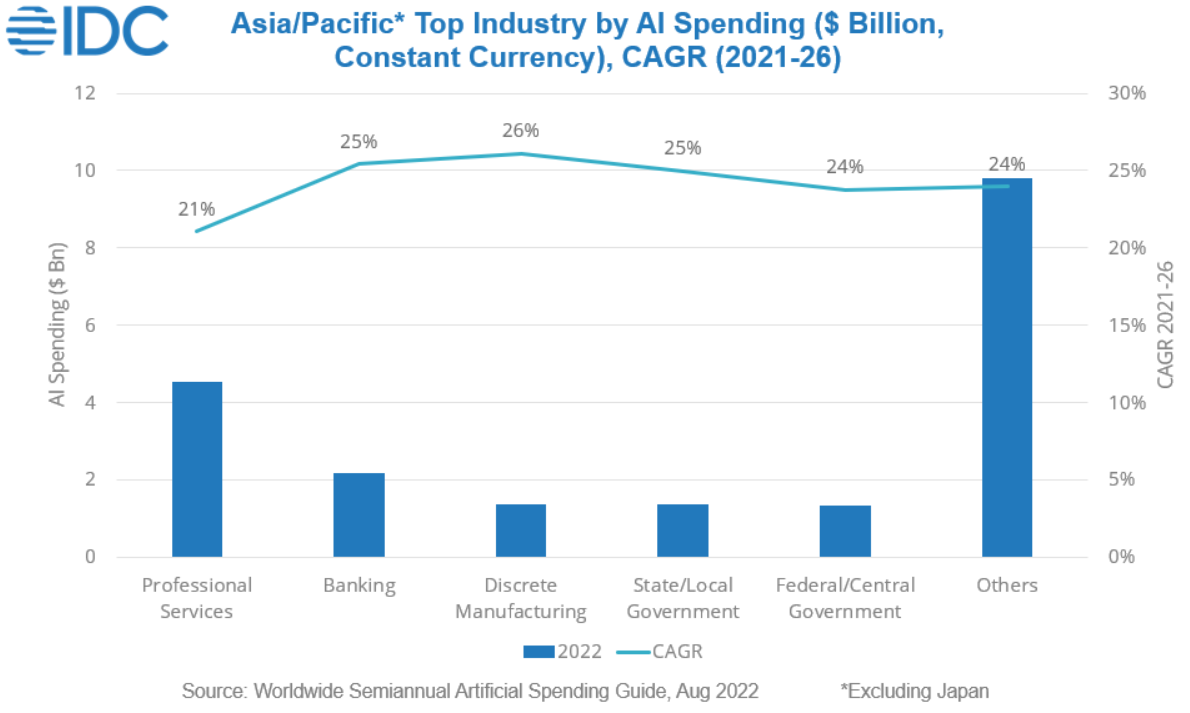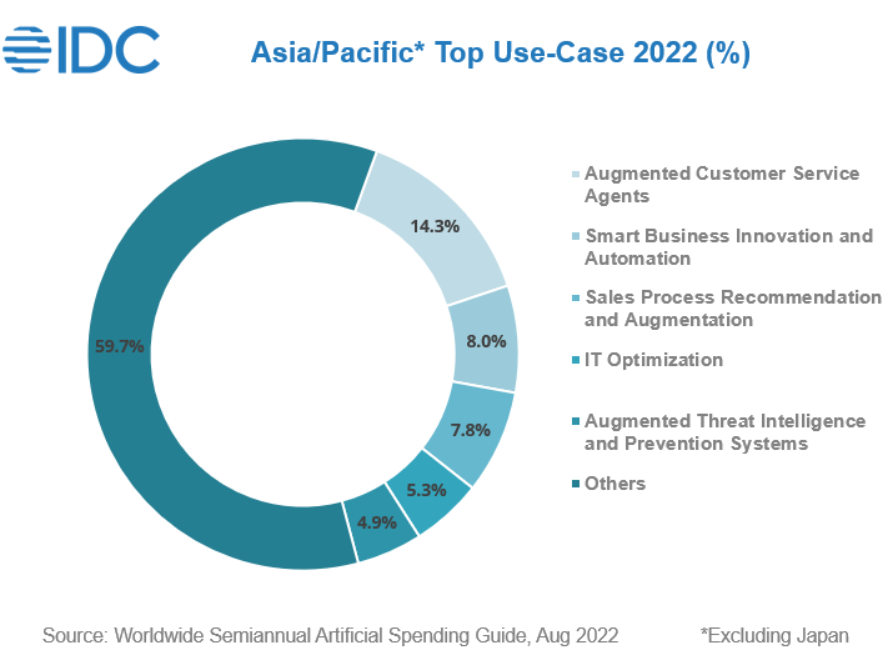AI spending to rise over $46 billion by 2026: Report

Artificial intelligence (AI) solutions have become an essential part of process improvement and business decision-making, assisting organisations in keeping up with market viability.
According to International Data Corporation’s (IDC) latest Worldwide Artificial Intelligence Spending Guide, the spending on AI systems (hardware, software, and services) in Asia/Pacific (excluding Japan) will rise from $20.6 billion in 2022 to around $46.6 billion in 2026.
IDC forecasts a compound annual growth rate (CAGR) of 23.7% for 2021-2026.
"Pre-trained natural language and computer vision models have contributed largely to the first wave of adoptions. It's time for more organisations to tap into their own data asset and start managing the 'data to intelligence' lifecycle. This will become one of the differentiating capabilities for companies to compete in the digital-first era," says Jessie Danqing Cai, associate research director, Artificial Intelligence, IDC Asia/Pacific.

Dependence on online services and their usage, as well as customer assistance enabled by AI, has improved in the rankings.
As per the report banking will continue to invest in AI solutions as market risks and threats increase; AI-enabled apps that boost threat intelligence and fraud analysis will help to reduce the risk.
As a result of the current economic volatility and rising resource scarcity, discrete manufacturing will be the next major industry to invest in AI solutions to maintain production quality and minimise errors.
State/local and federal/central government is the next biggest spender on AI solutions, focusing on public safety and emergency response, defence, terrorism, investigation, and government intelligence systems, as per the report
By 2026, spending on the top five use cases will have doubled, rising from $8.3 billion to $18.5 billion.

For example, augmented customer service agents reduce the time and resources required to resolve customer issues. Smart business innovation and automation optimise and streamline complex business tasks, enabling better decisions by incorporating more data into the decision-making process. Sales process recommendations and enhancements will aid in the smooth flow of the sales process and IT optimisation to automate time-consuming software maintenance tasks. Augmented threat intelligence and prevention systems help to identify threats for the digital business setup and take preventive measures to avoid critical data threats.
Hardware will be the leading technology, accounting for more than 54.2% of AI spending; the most significant investment areas will be servers, accounting for more than 86% of total expenditure, while the rest will go toward storage.
Software is the second leading technology with 29% of AI spending. 52% of total AI spending in software goes towards AI Applications and artificial intelligent platforms.
The rest of the AI spending goes to services technology, 77% of the total AI spending in services goes toward IT Services, and the rest is under Business Services.
As per the report, China is the leading country in AI spending in Asia/Pacific, and is expected to reach nearly $26.6 billion by 2026. Enterprises' demand for AI solutions has increased drastically. Digital transformation and policies is one of the factors for the rise in the AI-enabled industries.
Australia is the second leading country in AI spending, with $5.7 billion expected by 2026. The use of AI solutions in enterprises is increasing as it is critical in business decision-making and data process improvement.
India is the next leading and fastest growing country, with an expected CAGR of 33.5% in AI spending of $3.4 billion. Digital transformation, government initiatives, customer experience, and cloud adoption are some of the factors that influence enterprise adoption of AI solutions.
South Korea will be the next spender on AI solutions, which is expected to reach $2.9 billion by 2026. The South Korean government is constantly assisting businesses in adopting AI technologies by establishing AI hubs and education and training programmes for developing AI skills.
The Worldwide Artificial Intelligence Spending Guide sizes spending for technologies that analyse, organise, access, and provide advisory services based on a range of unstructured information. It quantifies the AI opportunity by providing data for 29 use cases across 19 industries in nine regions and 32 countries. It also offers data for the related hardware, software, and services categories.
















